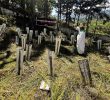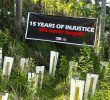Internally Displaced Persons (IDPs)
Clashes between the AFP and elements of MILF insurgents in Maguindanao Province during the period from June to August resulted in approximately 40,000 persons being displaced. In 2005 approximately 85,000 persons were displaced as a result of clashes in Sulu from February to April between the AFP and a faction of the Moro National Liberation Front aligned with the ASG. According to the Department of Social Welfare and Development (DSWD), at year’s end the total number of IDPs was 59,886 persons. Since 2004 DSWD has established 707 shelter units to resettle IDPs in other southern Mindanao regions and the ARMM. Other agencies, including UNDP, the Mindanao Emergency Relief Network, and the Red Cross provided food and essential items such as medicine, blankets, mosquito nets, and soap to IDPs.
Protection of Refugees
The country is a party to the 1951 UN Convention relating to the Status of Refugees and its 1967 protocol; however, there is no comprehensive legislation that provides for granting refugee status or asylum. In practice the government provided protection against refoulement, the return of persons to a country where they fear persecution, and granted refugee status or asylum. The refugee unit in the DOJ determined which asylum seekers qualify as refugees; such determinations in practice implemented many of the basic provisions of the 1951 convention. The government cooperated with the Office of the UN High Commissioner for Refugees (UNHCR) and other humanitarian organizations in assisting refugees. The government also provided temporary protection to individuals who may not qualify as refugees under the 1951 convention or its 1967 protocol. This was the case for some 1,500 Vietnamese asylum seekers who were found not to be refugees under the UNHCR-administered Comprehensive Plan of Action in the 1990s. Following the closure of the one remaining refugee camp on Palawan in 1997, the government permitted these former asylum seekers to remain in the country. However, none in this group were granted legal status.
Subsequently the government allowed processing for resettlement of this group, many of whom were resettled in the United States. An estimated 176 persons, most of whom married Philippine citizens, remained in legal limbo: ineligible for resettlement in other countries and not granted permanent asylum.
Section 3 Respect for Political Rights: The Right of Citizens to Change Their Government
The law provides citizens with the right to change their government peacefully, and citizens exercised this right through periodic elections that largely were free and fair and held on the basis of universal suffrage.
Elections and Political Participation
In 2004 national elections were held for president, senators, representatives, provincial governors, and local government officials. Voter turnout was high, with approximately 74 percent of eligible voters participating; however, voting was marred by numerous irregularities. An election monitoring survey conducted by a consortium of three international NGOs concluded that an antiquated voting system, system error, and improper management of registration databases disenfranchised thousands of voters. Widespread reports indicated that local politicians and their supporters engaged in vote buying and that conditions did not ensure that balloting was secret. Observers also received reports of NPA activists imposing “permission to campaign” fees on local candidates.
The 2004 election marked the first time that overseas Filipinos were able to vote. Approximately 230,000 of 354,000 registered overseas voters, or 65 percent, actually voted, a small portion of the millions of Filipinos working overseas. The low rate of registration was attributed by election NGOs to lack of information about the procedures, inaccessible registration centers, strict employers who did not allow overseas workers to take a day off, and the requirement that voters execute an affidavit to return to the country to reside within three years.
Extrajudicial Killings, Terrorism









